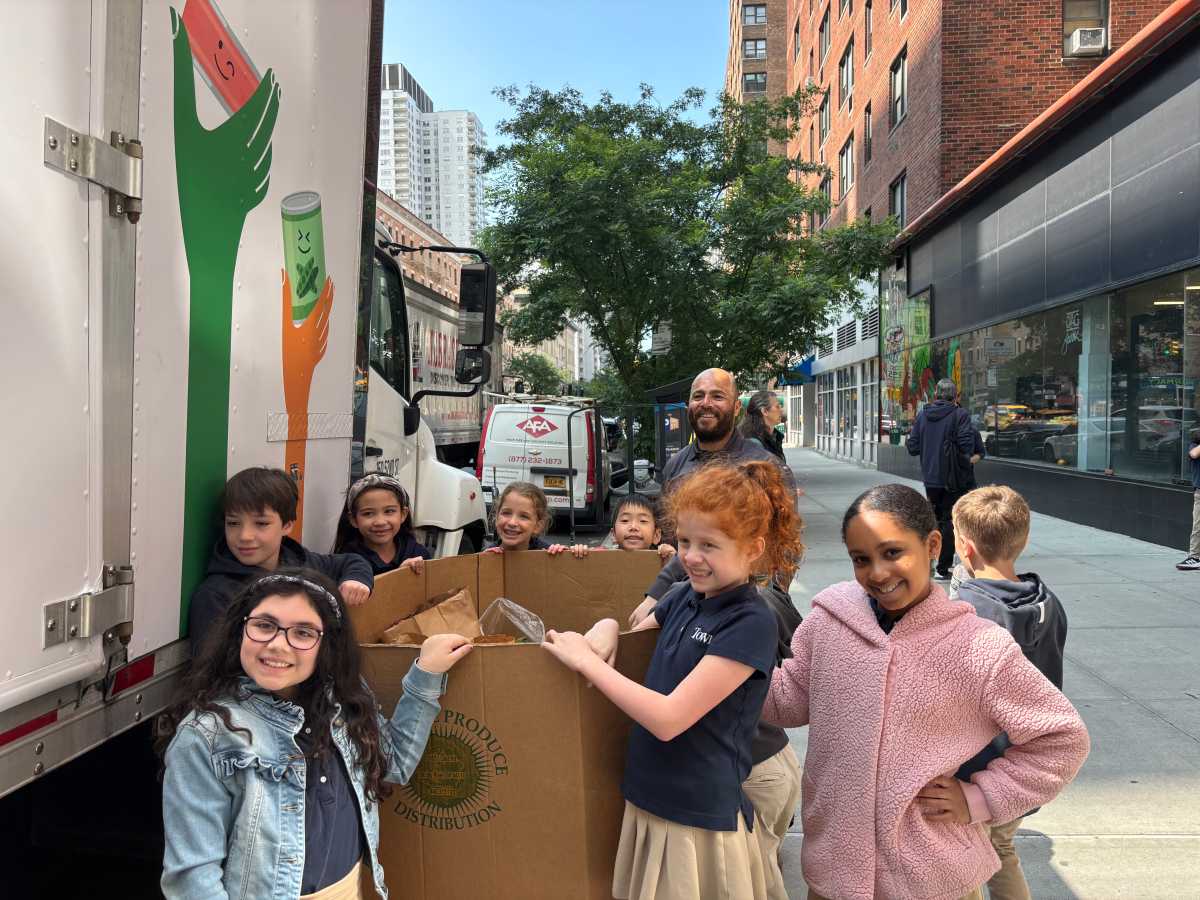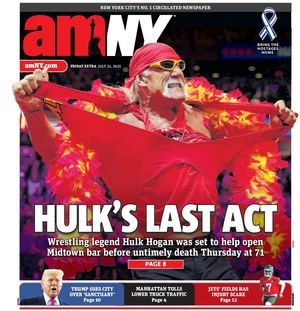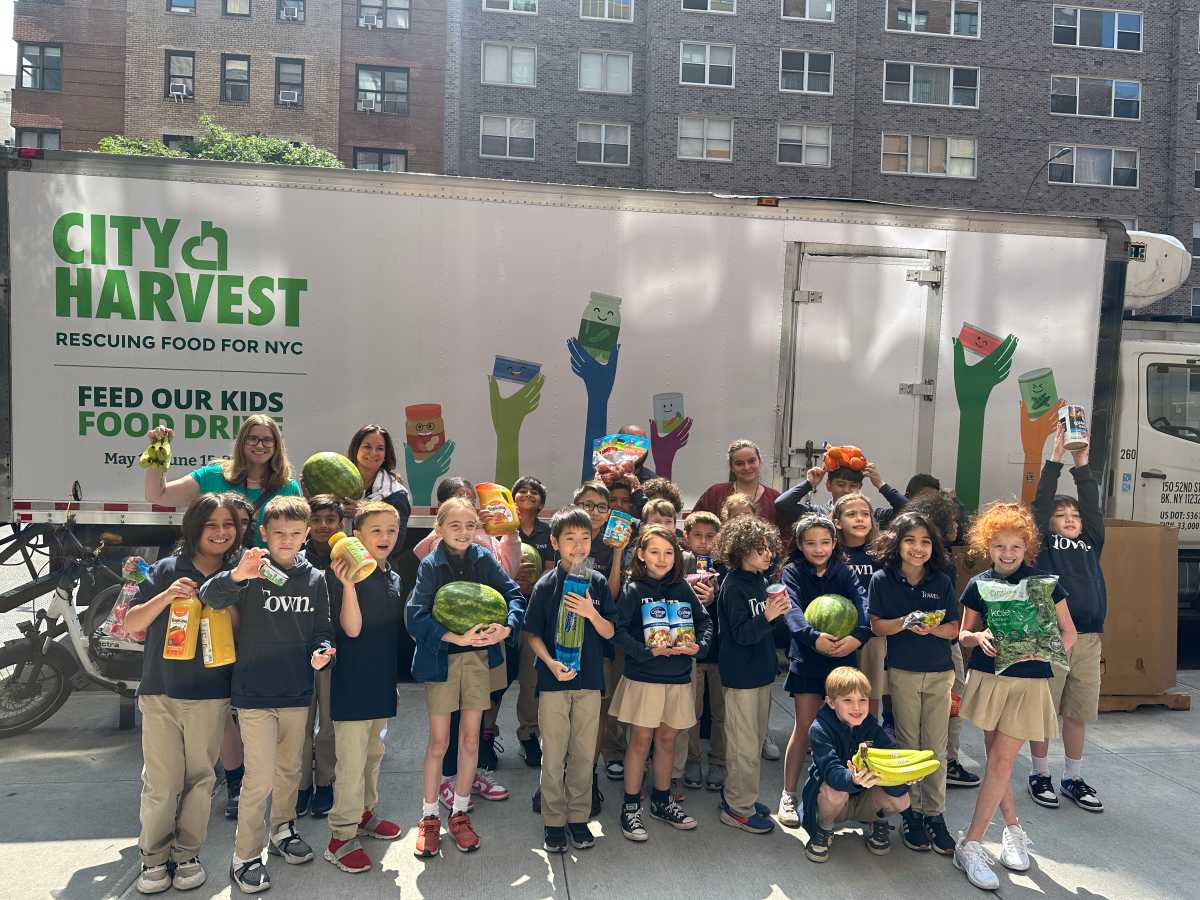Third graders from the Upper East Side’s The Town School are using their chore money to support City Harvest’s annual “Feed Our Kids Food Drive,” providing non-perishable food to food pantries around New York City.
The drive, which is in its 29th year, is particularly crucial this year as New Yorkers contend with rising prices and cuts to government programs supporting food pantries, said Julia Foster, City Harvest’s vice president of marketing and communications.
On Monday morning, June 2, students and teachers from The Town School loaded several carts of food from D’Agostino at East 80th Street and York Avenue — primarily non-perishable goods — into a City Harvest truck.
“This is a critical effort to help us get non-perishable, nutritious food that we can deliver to help feed families over the summer when access to school meals may become limited,” Foster said.

City Harvest, New York’s first and largest food rescue organization, aims to provide nutritious food to New Yorkers experiencing food insecurity. The “Feed Our Kids Food Drive,” which began on Mother’s Day, May 11, runs through Father’s Day on June 15.
“We collect millions of pounds of food every year that would otherwise go to waste and deliver it for free to food pantries and soup kitchens across New York City,” Foster said. City Harvest delivers to over 400 food pantries and soup kitchens across the city. Monday’s shipment from The Town School was likely headed to the Bronx, Foster said.
Karen Mulqueen, a head third grade teacher at the Town School, began the collaboration with City Harvest when she first started at the school 28 years ago. She recalled participating in school food drives when she was a student, recounting how her parents would send kids with cans of food to drop off at a school collection point.
With The Town School’s model, Mulqueen said, students carry a greater responsibility for their contribution.
“I felt really strongly that I wanted the kids to have some accountability, the kids to feel like they’ve done the work,” Mulqueen said. “The students learn a lot about food pantries, food shelters, and we integrate it with math and nutrition so the kids really understand the effect of what they’re doing for their community.”
When she started at The Town School, Mulqueen’s uncle was the head of the Chicago Food Depository and connected her to leadership at City Harvest, she said.
“I started this project when I first came to Town, just feeling really fortunate to be in such an incredible school and wanting the students to feel that and give back to their community,” Mulqueen said.
According to recent reports by City Harvest, food insecurity in New York City is at a record high. The past six years have seen an 85% increase in visits to soup kitchens and food pantries across the city, and one in four children in the city is experiencing food insecurity.
“The need is just enormous, and the number of New Yorkers who need to turn to food pantries and soup kitchens to help feed themselves and their families, it’s just staggering,” Foster said.
Atlas Anderson, a third grader at The Town School, said he and his classmates pooled chore money together to bankroll the donation.
“We would bring it in, and then we would split it up evenly between the classes, and use it to buy food for City Harvest and for the people who might not have as much food,” Anderson said.
The Trump administration, meanwhile, has cut or paused at least $1 billion in federal funds for agricultural programs, straining the ability of food pantries across the United States to provide for their communities amid rising prices. In New York, this has compounded an already severe food insecurity crisis.
Foster said projects like the “Feed Our Kids Food Drive ” are essential in providing nutritious food to New Yorkers who rely on food pantries and soup kitchens, particularly children.
“What we and so many of our partners are doing is trying to figure out how we can do more so that we can be there for the New Yorkers who are depending on us today, and over the summer, and in the months to come no matter what might happen, because there’s a lot of uncertainty right now, which is also scary,” Foster said.
Businesses, schools, fire departments, and police departments from across the city serve as points of collection for the annual food drive, Foster said.
“Our trucks are on the road seven days a week picking up food from food drive locations and then also from local businesses across New York City that have excess food that might otherwise go to waste,” Foster said.
Since The Town School’s collaboration with City Harvest began over 25 years ago, its students have donated more than 35,000 pounds of food to the annual drive.




































